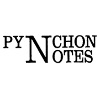Abstract
Recent studies of Thomas Pynchon have demonstrated that1allusion is one of the central premises of his art. His works are a thicket of references to music, painting, scientific theory, pop culture, and other literature. Among writers who have influenced Pynchon, according to David Cowart, Thomas Schaub, and others, Conrad figures prominently. Schaub, for example, discussing v. and Gravity's Rainbow, asserts that Pynchon's writing "integrates Conrad's view of civilization as a white force mining the southern darkness, trying in this way to domesticate the black unknown which threatens our conscious lives." Specific Conradian echoes in v. and Gravity's Rainbow underscore Pynchon's debt to the early modernist master in those two books which see colonialism as a central burden of modern Western man. While imperialism and colonialism are not central concerns of The Crying of Lot 49 Pynchon's second and shortest novel, it too has its Conradian dimension.
How to Cite:
Green, M., (1982) “The Crying of Lot 49: Pynchon's Heart of Darkness”, Pynchon Notes 8, 30-38. doi: https://doi.org/10.16995/pn.458
Downloads:
Download PDF

